As war continues to rage on in the Gaza Strip, over a million children are struggling to survive amid relentless violence, hunger and disease. With food supplies dwindling and scarce medical aid, children are fighting against all odds in a rapidly changing and worsening humanitarian catastrophe.
It’s been 19 months since the conflict escalated, and every second of every day the crisis in Gaza grows more devastating. We’ve said it again and again – children are suffering, dying, and starving. This must end.

For 11 weeks critical lifesaving aid and commercial goods were blocked from entering the Gaza Strip. Even now, only the bare minimum is being allowed to trickle in, while truckloads of food and supplies sit just beyond the border. This is a complete violation of international humanitarian law. This widespread denial of essential food, resources, and services while continuous airstrikes and bombardments rained down on children and their families has led to devastating loss and has forced caregivers and healthcare workers to make impossible decisions.
"Last night was really terrifying. I was sleeping when an airstrike hit nearby. I woke up terrified. I look around me and I see all of my family terrified, and my little niece, crying non-stop hiding in her mother’s lap. We need long-lasting ceasefire to be able, as humanitarians, to deliver."
Children, who should be playing, learning and growing up, are being buried before they have a chance to live.
Children deprived of lifesaving nutrition, are wasting away
Children in Gaza are starving. Deprived of essential food and clean water, they are wasting away in famine-like conditions, while lifesaving supplies are desperately close across the border. Gaza’s entire population is at critical risk of famine, with hunger and malnutrition dramatically getting worse, especially since aid was blocked.
According to the Integrated Food Security Phase Classification (IPC), a tool that was created by the United Nations Food and Agriculture Organisation to keep track of hunger around the world, 470,000 people are enduring catastrophic hunger, while the entire population faces acute food insecurity. The crisis is especially dire for the most vulnerable – 71,000 children and more than 17,000 mothers who now require urgent treatment for acute malnutrition.
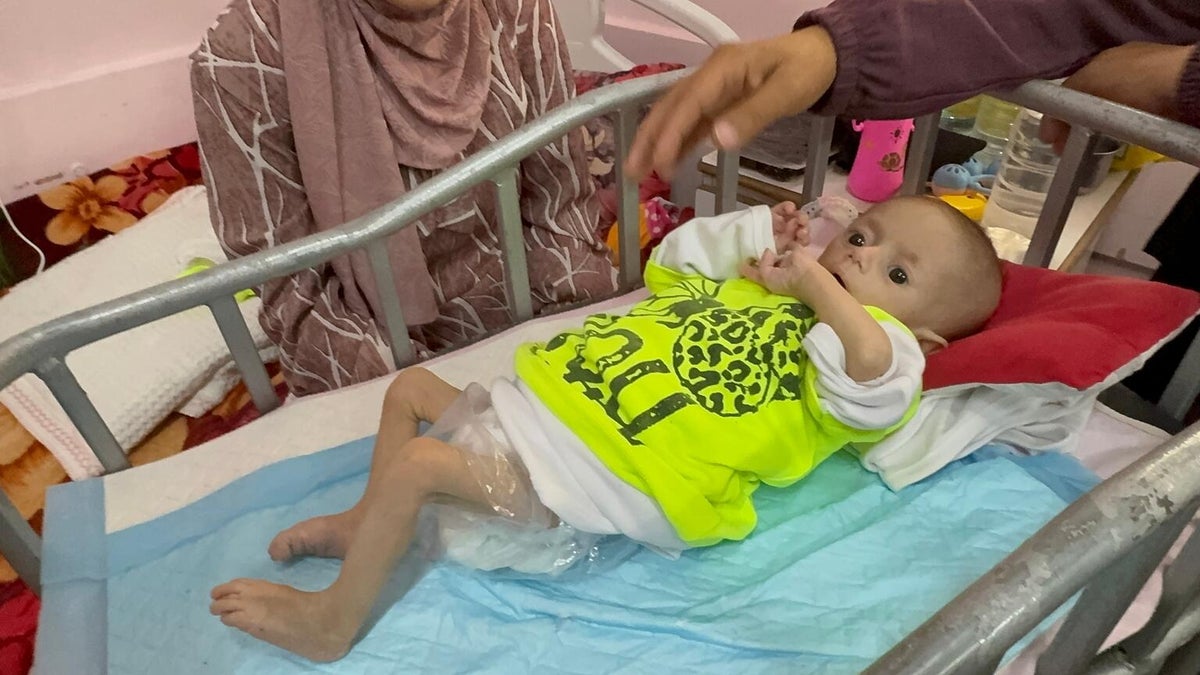
At a hospital in Gaza, five-month-old Sewar is one of many severely malnourished and dangerously underweight children in Gaza. Born healthy, Sewar became severely malnourished amid the ongoing aid shortage. Her mother, Najwa, explains that the lack of food prevents her from breastfeeding, leaving both mother and daughter at high risk.
Najwa is not the only one, malnourished mothers in Gaza are struggling to breastfeed their babies. With baby formula running out, breastfeeding is one of the only ways that newborn babies are able to get nutrition.
“It was hard to find food – I was always hungry and exhausted. After giving birth, I couldn’t even breastfeed her properly. Everything was too expensive, and I didn’t have the nutritious food I needed.”
Najwa continues, “It breaks my heart to see Sewar suffering. When she cries, I can barely hear her – she’s too weak. I just wish the war would end, and that my daughter could receive the medical care she deserves. I can endure everything we’re going through but not watching Sewar suffer like this.”
UNICEF provides essential medical and nutrition supplies to treat children with a life-threatening form of malnutrition. The support enables the hospital’s health teams to stabilise young patients, manage complications, and initiate nutritional rehabilitation, giving them the best possible chance to recover.
Children are not safe in hospitals or schools turned shelter
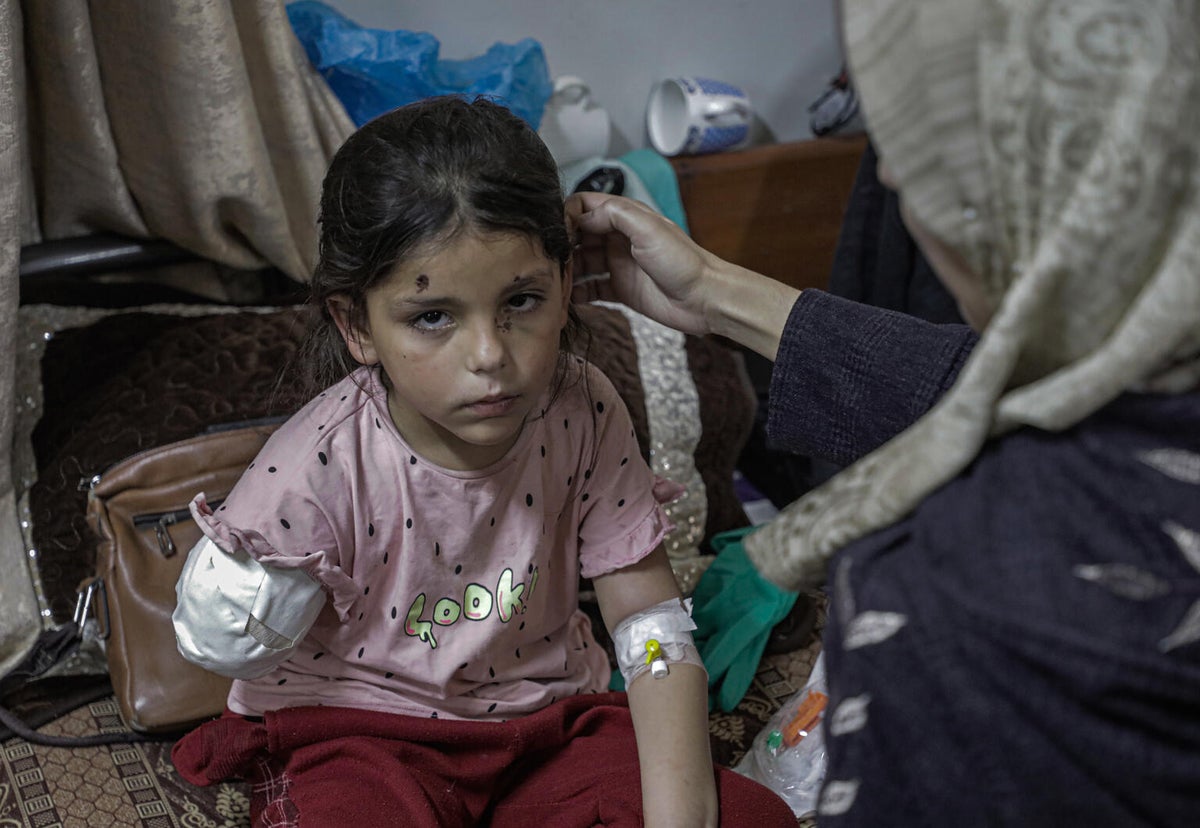
Ongoing attacks on places that are meant to be safe havens are shattering children’s lives. One of the many tragedies was the attack on a school – serving as a shelter for displaced families – in northern Gaza on a Thursday afternoon in April 2025. In the midst of the chaos, eight-year-old Ghada suffered severe injuries.
“Ghada was playing with her friends in the shelter. She used to wait for the afternoon every day to gather with her friends and play in the yard — that’s what kids do at this age. But sadly, in a single moment Ghada lost her hand, and she lost her friends,” says Ghada’s father.
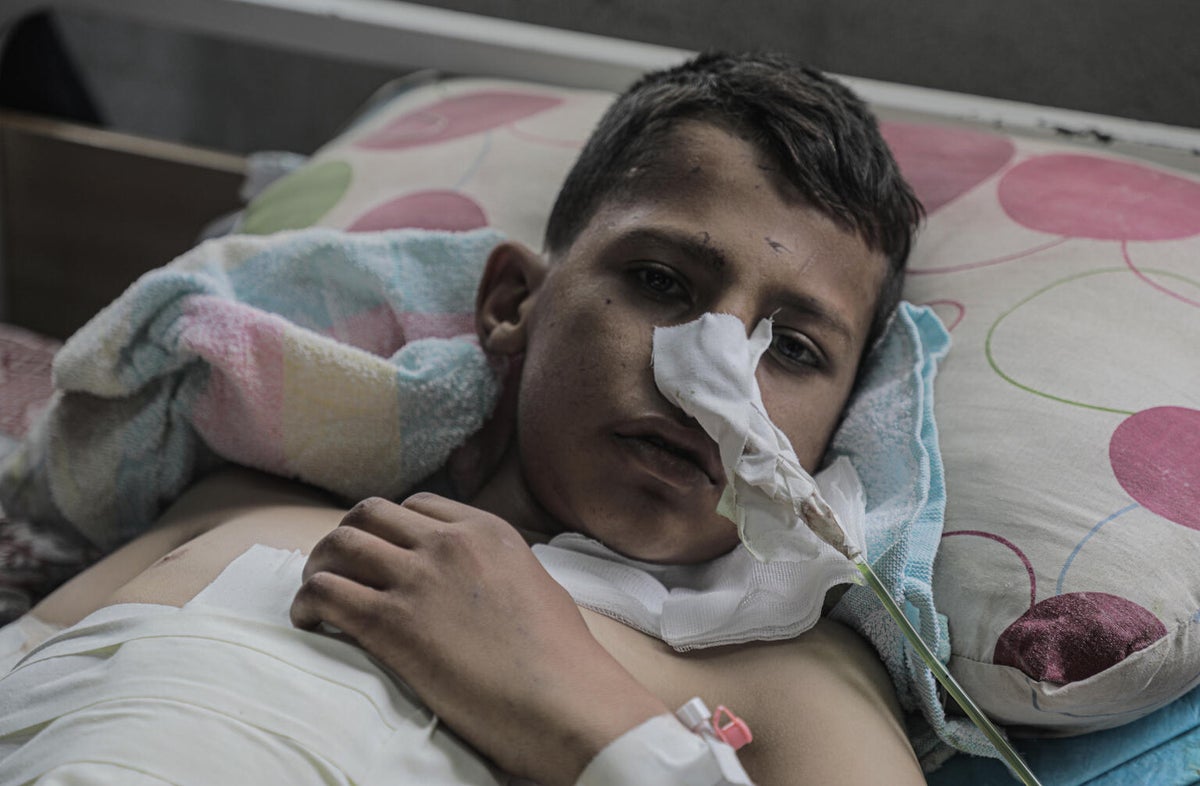
During that same attack, 14-year-old Ahmad was playing with his friends when the airstrike struck, causing major trauma that resulted in a hand amputation and severe abdominal injuries.
"We were displaced multiple times during the war. Each time, I would flee to what I thought was a safer place, only to find there was no such thing as safety."
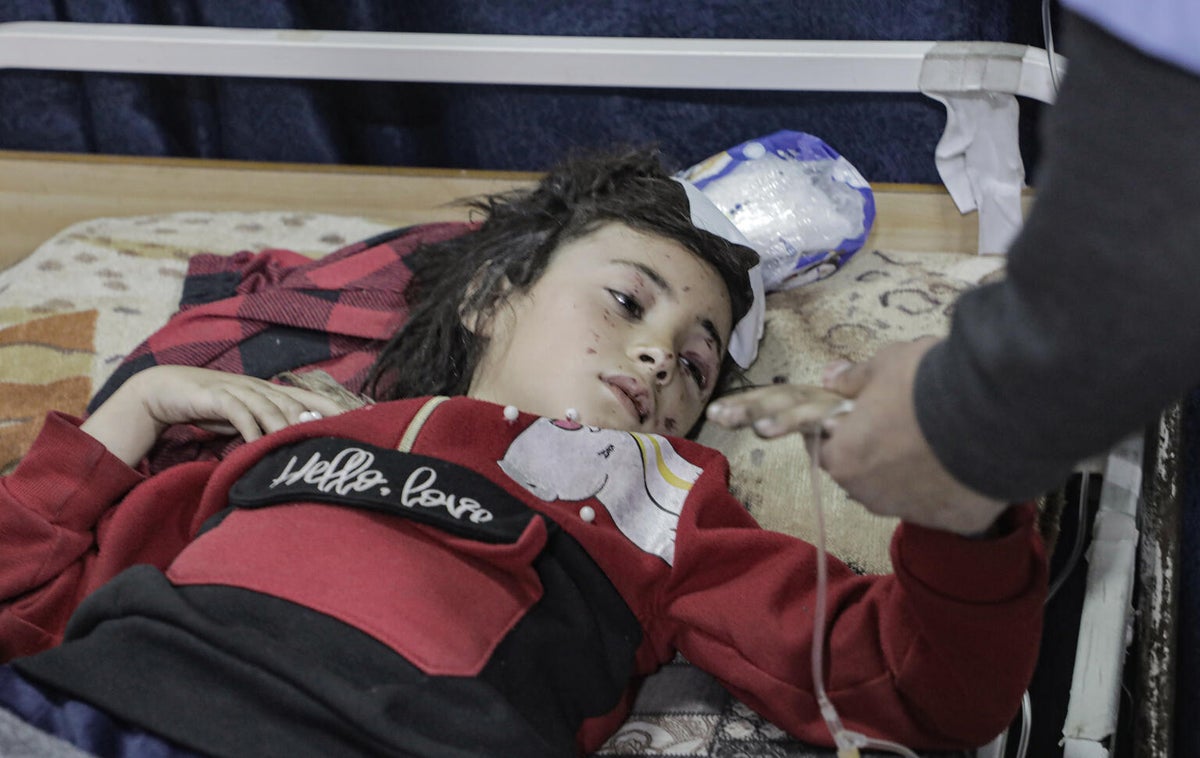
The attack also devastated the life of eight-year-old Judy and her family. Her father and three of her siblings were killed. Her mother suffered a traumatic leg amputation, while Judy and two sisters were injured when the building collapsed around them. Judy endured three skull fractures and internal bleeding.
"Judy is now all alone. Our family has been torn apart – some members are in treatment, others are missing with uncertain fates, and many will never return. We are left with nothing but heartbreak."
UNICEF is a lifeline for children
The situation feels beyond impossible. Yet, despite this, nearly 120 UNICEF staff remain on the ground in Gaza delivering services, to keep water flowing, supporting hospitals, treating malnutrition, delivering education, and protecting children from harm.
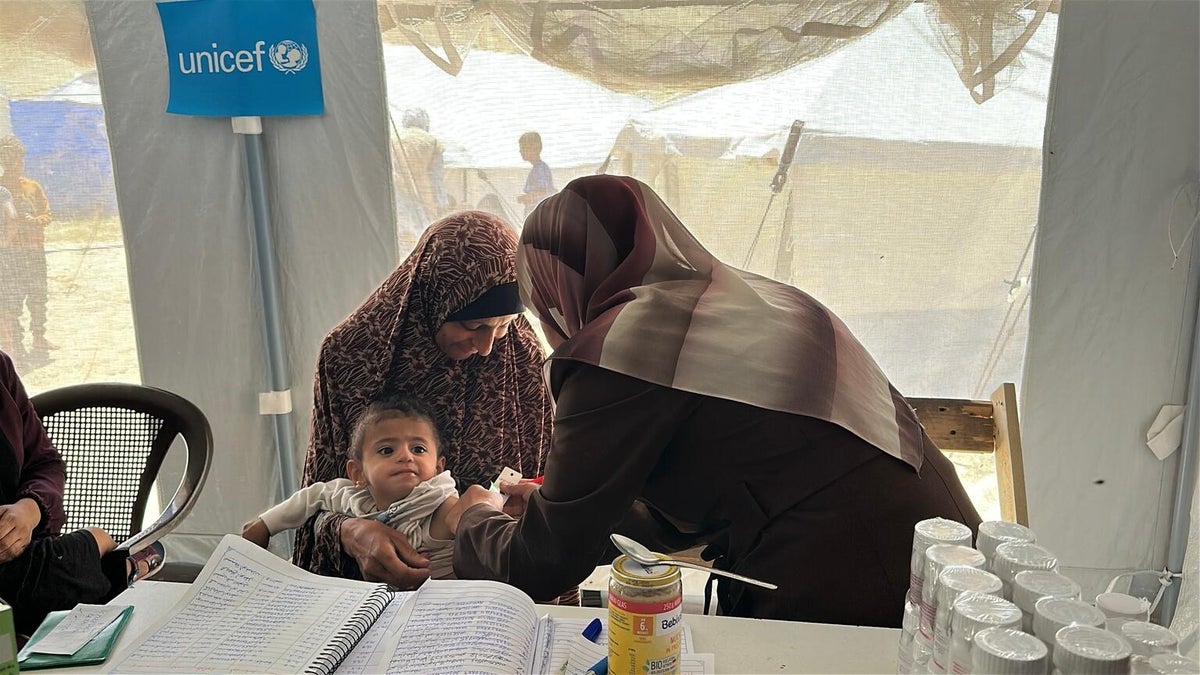
The five services that we’re delivering:
- Providing access to clean water for 1.5 million people, including 600,000 children.
- Treating children for malnutrition. But with the ongoing blockades and restrictions, our stocks are running low.
- Reuniting children with their families and supporting children with mental health services.
- Immunising children against vaccine preventable diseases such as measles, polio and diphtheria.
- Reaching children with learning initiatives using temporary learning spaces.
UNICEF also has the equivalent of over 1,000 truckloads of supplies from all sectors ready to deliver to Gaza as we wait for aid restrictions to be lifted.
As the situation evolves, UNICEF continues to call for an immediate ceasefire and humanitarian aid and commercial goods to be allowed to enter, because without this, children will continue to suffer and die.
Children of Gaza Crisis
Unrelenting violence and looming famine threaten the lives of over a million children. Donate today
Related articles
Stay up-to-date on UNICEF's work in Australia and around the world
















